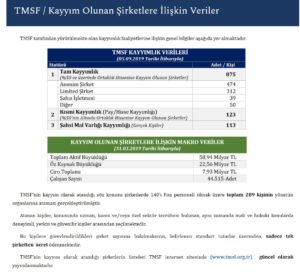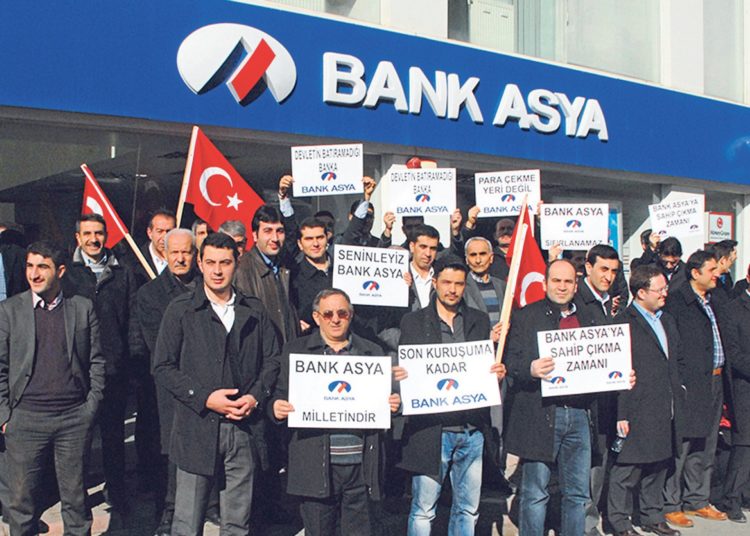Abdullah Bozkurt/Stockholm
A Turkish prosecutor is viewing as suspects nearly 50,000 people who had worked for companies owned by critics of President Recep Tayyip Erdoğan that were unlawfully seized, listing their employment records as evidence of a crime.
The scandalous action was revealed in a communiqué sent on November 6, 2020 by Istanbul public prosecutor Fuat Yüzer. He ordered the police to check whether two Turkish nationals under investigation had worked for companies or organizations seized by the government and if so, to obtain their employment records for incorporation into the criminal case file.
Since 2015 the Erdoğan government has seized 998 private companies including major conglomerates as part of a crackdown on the Gülen movement, a group that is critical of President Erdoğan over corruption in the government and Turkey’s aiding and abetting of armed jihadist groups.
The unprecedented move, criticized as a frontal attack on free enterprise and the free market economy, helped Erdoğan intimidate his opponents and redistribute confiscated wealth to his cronies.
Public prosecutor Fuat Yüzer’s scandalous order to investigate people who worked for firms owned by opponents of President Erdoğan:
The Savings Deposit Insurance Fund (TMSF), a government watchdog that is used as a political tool by President Erdoğan, has taken over the management of hundreds of companies without any effective judicial or administrative probe. It later sold many of the firms to Erdoğan’s friends and associates for prices far below market value, often in non-competitive sales.
In the meantime, Turkish prosecutors launched criminal procedures against the managers and employees of the seized firms and listed their employment records with the Social Security Institution (SGK) as evidence of crime in politically motivated indictments.
Prosecutor Yüzer’s order is certainly not an isolated one. It is one of many issued by prosecutors across Turkey in a bid to obtain so-called criminal evidence against government critics, opponents and dissidents as part of a campaign of intimidation against businesses that may be otherwise inclined to support the opposition.
According to the TMSF’s official records, as of September 5, 2019 the Erdoğan government had seized 998 companies including major conglomerates such as Boydak Holding, the Koza Ipek Group, Kaynak Holding, Naksan Holding, Suvari Co, Dumankaya, Akfa, Orkide and Sesli, valued at close to $11 billion at the time.

The personal assets of 113 people, among them many leading journalists, were also confiscated by the government.
A total of 44,515 people were listed as having worked for the confiscated companies, suggesting that the government considered all of them potential criminals and might prosecute them based on the jobs they held in the past.
An updated list indicates that 769 companies were still under TMSF management of August 25, 2021, the last time Nordic Monitor accessed the TMSF website, meaning that more than 200 companies have already been sold or liquidated.
Critics of the Erdoğan government, especially members of the Gülen movement, have been facing surveillance, harassment, threats of death and abduction since 2014, when then-prime minister and current President Erdoğan decided to scapegoat the group for his own legal troubles. He accuses the movement of being behind corruption investigations in 2013 and a coup attempt in July 2016, allegations the movement denies. The Turkish government has failed to present evidence to support the allegations.
Many believe the failed coup was a false flag operation orchestrated by Erdoğan and his intelligence and military chiefs to set up the opposition for a crackdown. During coup trials, evidence emerged that many operatives of the intelligence agency had worked to make the limited military mobilization appear to be a real coup attempt.
A list of 769 firms under TMSF control, most of them seized from owners seen as critical of the Erdoğan government:
The crackdown on the movement intensified in the aftermath of the coup attempt. The assets and wealth of individuals, corporations and organizations that were seen as affiliated with the movement were branded as war spoils open to plunder. The assets of Gülen-affiliated entities such as schools, universities, media outlets, companies and apartment buildings were confiscated or stolen by their new owners, and their property was divided up among Erdoğan’s Islamists and their collaborators.
A total of 292,000 people affiliated with the movement have been detained, while 96,000 others have been jailed in the last five years according to figures announced by Interior Minister Süleyman Soylu in September 2020.
According to statistics released by the Council of Europe (CoE), as of January 2020 out of 30,524 prisoners convicted on terrorism charges in the 47 CoE member states, 29,827 were in Turkey. In other words, 98 percent of all inmates convicted of terrorism in all of Europe are resident in Turkey. It shows how the government abuses its counterterrorism laws to punish critics, opponents and dissidents in this country of 84 million that is suffering under the iron grip of President Erdoğan.












